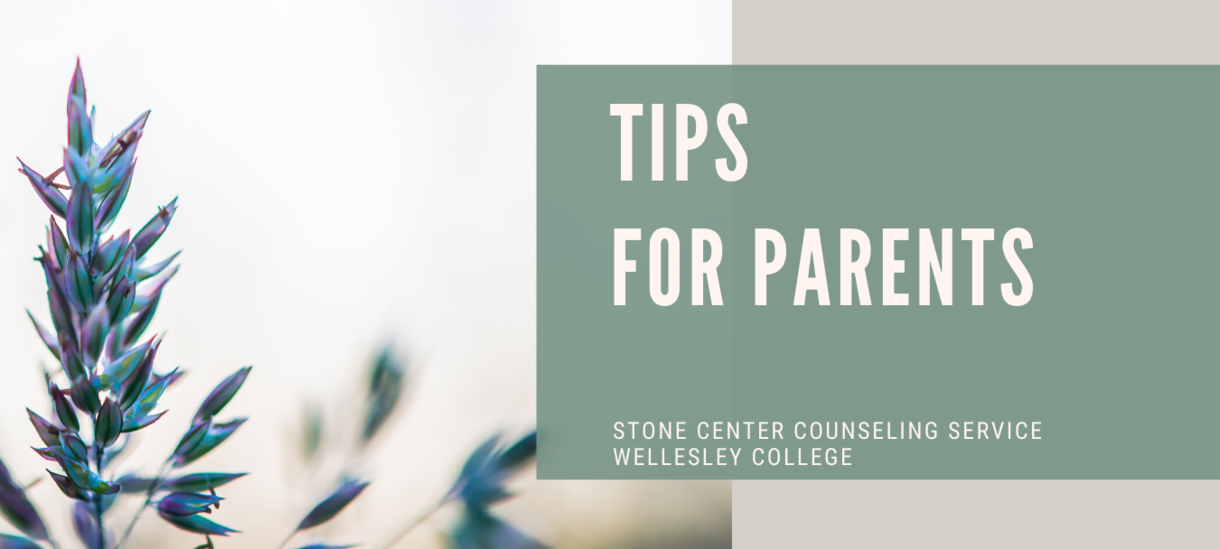
Tips for Parents
The Wellesley College website is currently in transition. This temporary site is for current Wellesley College community members. If you're a prospective student or employee, please go to our new site at www.wellesley.edu.

Tips for Parents